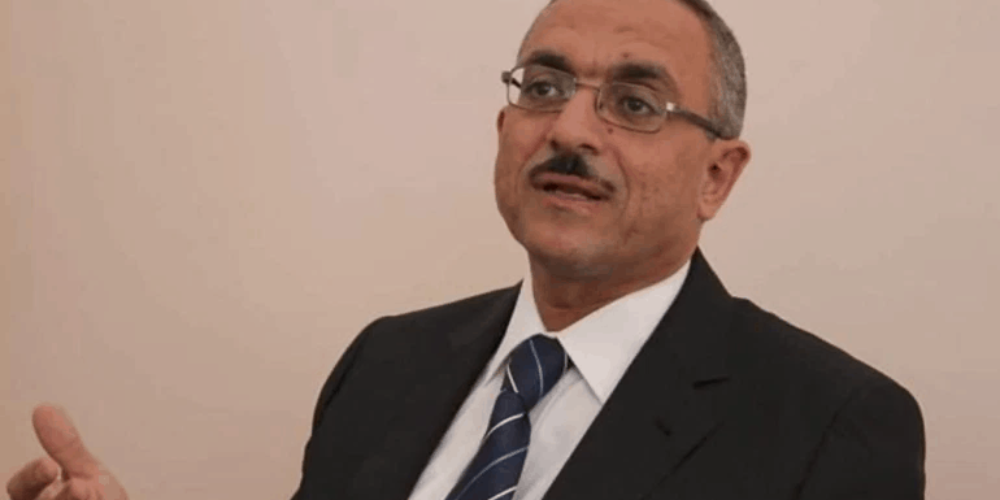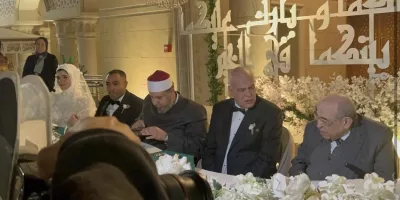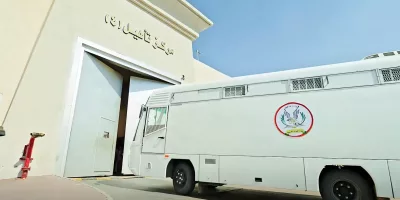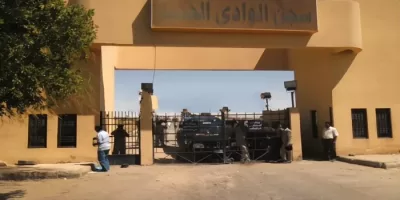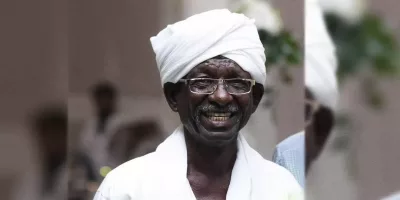The Committee for Justice (CFJ) condemned the death of the detainee Dr. Amr Abu Khalil at the maximum-security of Aqrab (part of the Tora prison complex) in Egypt’s capital Cairo, as an extrajudicial killing.
Abu Khalil passed away on Sunday 6 September 2020 in his prison cell as a result of medical negligence, CFJ said on Tuesday.
CFJ has documented the violations committed against Abu Khalil since his arrest nearly one year ago due to the activism of his brother, the human rights defender and opposition journalist, Haitham Abu Khalil who lives in exile.
On 2 October 2019, plainclothes national security agents and police officers stormed his clinic at 10 pm and arrested him without showing an arrest warrant.
They also raided his apartment while his mother was there, searched it, and confiscated many of his belongings, including 40,000 Egyptian pounds and 5 mobile phones.
The forces also raided another apartment owned by Abu Khalil’s family and confiscated jewelry, a television set, and some documents.
The family says that these belongings have very possibly been stolen, as they were not officially documented in the written “official record.”
Commenting on the case, CFJ Executive Director Ahmed Mefreh said:
“As an organization that has fully documented Abu Khalil’s case, we have lodged an international complaint regarding the violations that have been practised against him since his arrest. Egyptian authorities bear the responsibility of everything that happened to him because of its negligence in following up on the deteriorating health status of the detainee, which led to his death.’’
On 6 October 2019, Abu Khalil appeared before the Egyptian prosecutor in the absence of his lawyer, in Case No. 1118 of 2019, and the prosecution charged him with funding and joining the Muslim Brotherhood group.
On 27 October, Abu Khalil’s lawyer was able to meet him for the first time during the renewal of detention session in front of the prosecution. Abu Khalil confirmed to his lawyer that he has been banned from wearing his own glasses and that he could not access clean clothes, nor his medication.
Abu Khalil has been held in several places of detention. The first one was Tora Prison 1 maximum-security, where he was placed in solitary confinement without a valid reason and was not allowed to receive visits from his family or his lawyer. His family, therefore, did not have any information about the conditions of his detention and health.
On 24 June 2020, CFJ documented Abu Khalil’s infection with the coronavirus (COVID-19) inside his prison cell in the Aqrab (Scorpion) prison, amid a ban on food and medicine, and his complete isolation from the world since his arrest.
According to the testimonies of people arrested inside the Scorpion prison, the living conditions inside it make it a fertile environment for the spread of epidemics and diseases. Inmates have no sun exposure, are held inside cells measuring 7 square meters, which are designed to be solitary cells. However, three to five inmates are held in such cells, in violation of the rules of social distancing required to prevent the spread of the coronavirus, in addition to the absence of clean water or any personal hygiene supplies.
As soon as it documented these violations against Abu Khalil, CFJ contacted the UN Special Rapporteur on the promotion and protection of the right to freedom of opinion and expression, considering these violations a form of retaliation against human rights defenders, as the main objective of arresting Abu Khalil was the activism of his brother, a human rights defender living in exile.
CFJ stresses that the rapid increase in deaths in detention centers recently in Egypt is essentially a result of intentional medical negligence which the detainees have been suffering since they were locked in prisons last March, and also before March 2020, which led to more than 1050 deaths in detention centers as documented by the organization.
Mefreh added: “Since August alone, the organization has monitored 12 deaths in prisons and detention centers in Egypt, 8 of them in August and 4 in September, 10 of whom died due to lack of health care. The “Tora” prison area topped the number of cases with 6 deaths, which confirms the scale of the humanitarian catastrophe inside it.’’
CFJ, through its previous report entitled “Without Accountability,” has discussed the miserable conditions of prisons and detention centers in Egypt, which indicated that death in Egyptian detention centers is the result of torture, denial of medical care, or poor living conditions in detention centers.
In addition, the root causes of the death of detainees – which have not yet been addressed by Egyptian authorities – are “intentional” to a large extent, especially since authorities have not opened any serious investigation into any of these deaths.
Likewise, the dysfunctional Egyptian judicial system, and the lack of internal investigations of prison administrations, in addition to the deficiency of domestic laws and legislations that criminalize torture, their inconsistency with international standards against the crime of torture and the absence of deterrent laws and the legalization of impunity have all greatly contributed to the high number of detainees’ deaths.
Thus, it is clear that what is happening inside various detention centers in Egypt in terms of deaths among detainees and detainees is a result of the arbitrary issuance of laws and regulations establishing detention facilities, the absence of legal guarantees for prisoners, and the complete disregard by the authorities of the appalling conditions of detention, despite their renewed vows to improve them.
Mefreh called on the Egyptian Public Prosecution, represented by the Public Prosecutor, to open a serious and transparent investigation into the circumstances of the death of Abu Khalil, especially since it is the third death in less than a month, after the death of both the detainee Dr. Essam El-Erian on 13 August, and Ahmed Abdel Nabi on the 2 September, for the same reason.
He also called on Egyptian authorities to adhere to the general principles of human rights in dealing with their detainees, providing them with means of a healthy life, as well as providing the necessary health care, especially since most of them suffer from chronic diseases or are elderly.

